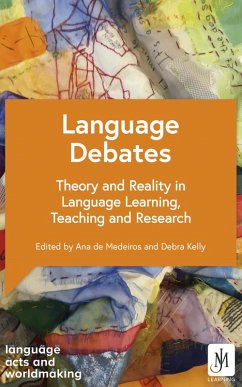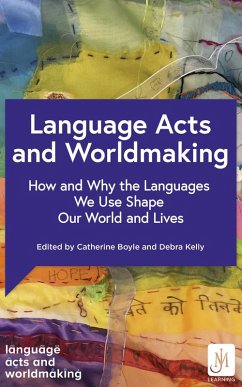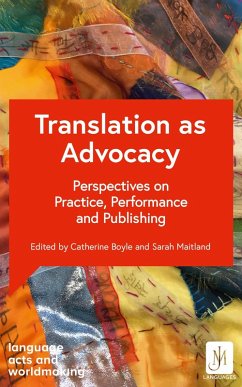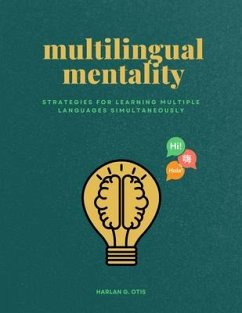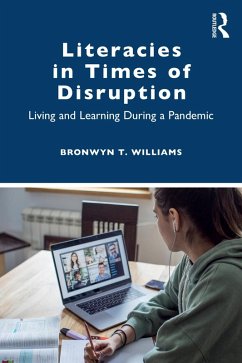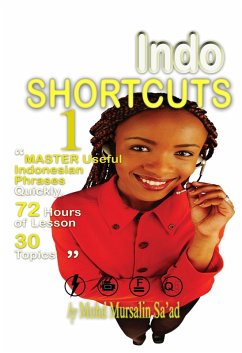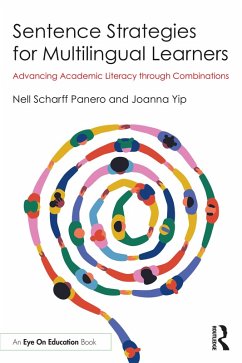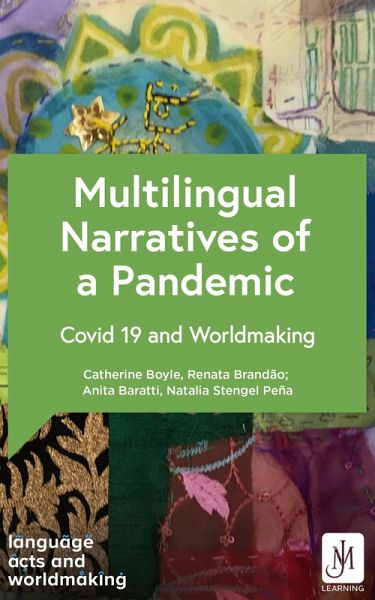
Multilingual Narratives of a Pandemic (eBook, ePUB)
Covid 19 and Worldmaking

PAYBACK Punkte
0 °P sammeln!
We narrate everything. We construct the world around us by telling its stories, shaping the language we use to describe what is happening to us; language that is used and adapted in the media in response to moments of crisis. This language in turn shapes how we see the world. This is what we call 'worldmaking'. When we look for solutions to problems, we so often start by telling stories to each other in our communities, stories that set a crisis in context, relate it to our historical experience, help us to understand it in the context of our local communities and contrast those stories to dom...
We narrate everything. We construct the world around us by telling its stories, shaping the language we use to describe what is happening to us; language that is used and adapted in the media in response to moments of crisis. This language in turn shapes how we see the world. This is what we call 'worldmaking'. When we look for solutions to problems, we so often start by telling stories to each other in our communities, stories that set a crisis in context, relate it to our historical experience, help us to understand it in the context of our local communities and contrast those stories to dominant narratives. In this way, language becomes a physical and material force in our world, through which we construct our personal, local, transnational and spiritual identities.
'Worldmaking in the Time of COVID-19', the project that informs this book, was an
early response to the experience of living through the COVID-19 pandemic - intended as a contribution
to our collective understanding of the COVID-19 pandemic. Following comparison and analysis of over 1.1 million news articles from 117 countries in twelve different languages, this timely reflection follows the course of this investigation, with three main
objectives:
- to capture the languages of the early pandemic (January-
April 2020);
- to offer a transferable methodology for exploring world
events in multiple languages;
- and to share some of the key findings of researchers.
Like all the volumes in the Language Acts and Worldmaking series, the overall aim is two-fold: to challenge widely-held views about language learning as a neutral instrument of globalisation and to innovate and transform language research, teaching and learning, together with Modern Languages as an academic discipline, by foregrounding its unique form of cognition and critical engagement. Specific aims are to:
· propose new ways of bridging the gaps between those who teach and research languages and those who learn and use them in everyday contexts from the professional to the personal
· put research into the hands of wider audiences
· share a philosophy, policy and practice of language teaching and learning which turns research into action
· provide the research, experience and data to enable informed debates on current issues and attitudes in language learning, teaching and research
· share knowledge across and within all levels and experiences of language learning and teaching
· showcase exciting new work that derives from different types of community activity and is of practical relevance to its audiences
· disseminate new research in languages that engages with diverse communities of language practitioners.
'Worldmaking in the Time of COVID-19', the project that informs this book, was an
early response to the experience of living through the COVID-19 pandemic - intended as a contribution
to our collective understanding of the COVID-19 pandemic. Following comparison and analysis of over 1.1 million news articles from 117 countries in twelve different languages, this timely reflection follows the course of this investigation, with three main
objectives:
- to capture the languages of the early pandemic (January-
April 2020);
- to offer a transferable methodology for exploring world
events in multiple languages;
- and to share some of the key findings of researchers.
Like all the volumes in the Language Acts and Worldmaking series, the overall aim is two-fold: to challenge widely-held views about language learning as a neutral instrument of globalisation and to innovate and transform language research, teaching and learning, together with Modern Languages as an academic discipline, by foregrounding its unique form of cognition and critical engagement. Specific aims are to:
· propose new ways of bridging the gaps between those who teach and research languages and those who learn and use them in everyday contexts from the professional to the personal
· put research into the hands of wider audiences
· share a philosophy, policy and practice of language teaching and learning which turns research into action
· provide the research, experience and data to enable informed debates on current issues and attitudes in language learning, teaching and research
· share knowledge across and within all levels and experiences of language learning and teaching
· showcase exciting new work that derives from different types of community activity and is of practical relevance to its audiences
· disseminate new research in languages that engages with diverse communities of language practitioners.
Dieser Download kann aus rechtlichen Gründen nur mit Rechnungsadresse in A, B, BG, CY, CZ, D, DK, EW, E, FIN, F, GR, HR, H, IRL, I, LT, L, LR, M, NL, PL, P, R, S, SLO, SK ausgeliefert werden.



